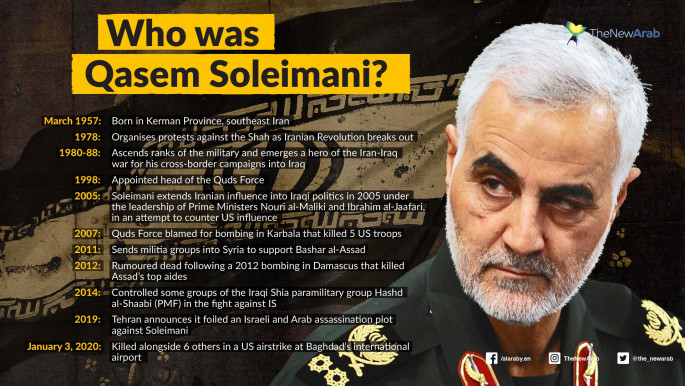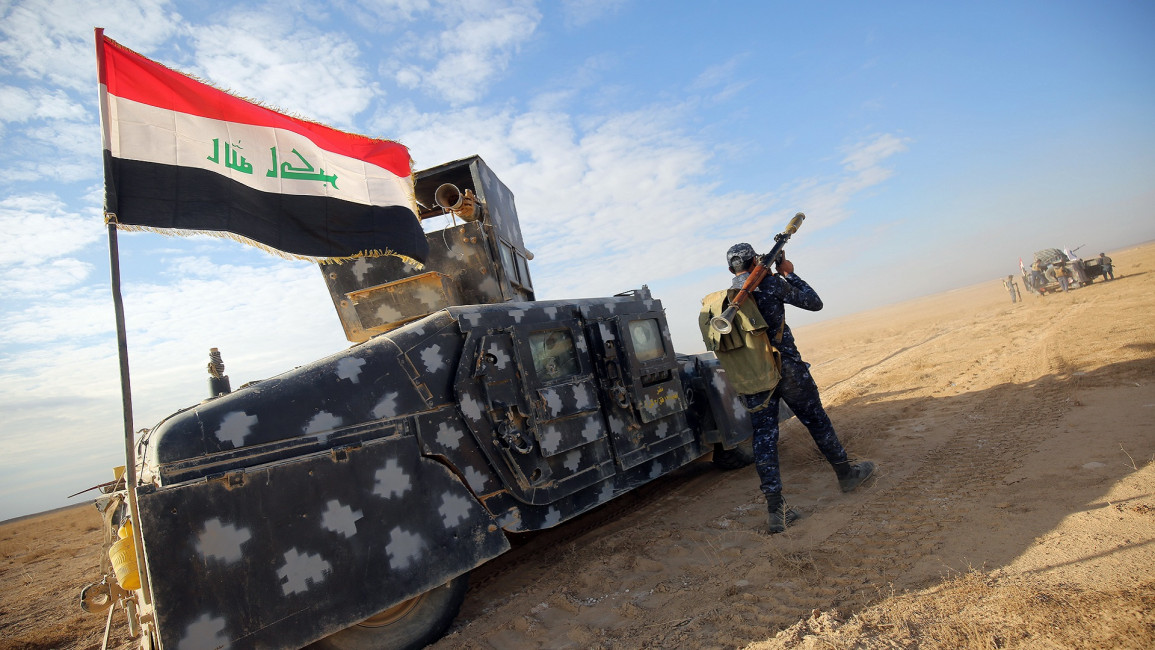Iraq parliament demands foreign troops expulsion after Soleimani killing
"The parliament has voted to commit the Iraqi government to cancel its request to the international coalition for help to fight IS," speaker Mohammed Halbusi announced.
The move came after widespread anger of the killing of Soleimani and Iraqi paramilitary leader Abu Mahdi al-Muhandest on Friday, which triggered fears of a war between the US and its arch-enemy Iran.
Earlier on Sunday, Iraq said it had submitted complaints to the United Nations Security Council over US strikes on Iraq that killed the commanders.
The foreign ministry said it had submitted two letters to the UN and asked the Security Council to condemn the "assassination" of Iranian Major General Qasem Soleimani in an American drone strike on Baghdad.
The Iraqi foreign ministry also said it summoned US ambassador Matthew Tueller to condemn the American strikes.
"They were a blatant violation of Iraqi sovereignty," the ministry said in a statement, and "contradict the agreed-upon missions of the international coalition.”
Soleimani was Iran's most powerful military commander, directing large-scale operations in Syria, Iraq and across the Middle East.
Muhandis, the Hashd al-Shaabi's deputy leader, helped found Kataib Hezbollah in Iraq.
The assassinations angered Baghdad, which has since 2003 grown closer to its Iranian neighbour.
Iraq’s prime minister attended a huge mourning procession in Baghdad on Saturday for the slain commanders. Adel Abdel Mahdi joined Muhandis associate Hadi al-Ameri, Shia cleric Ammar al-Hakim, former premier Nouri al-Maliki and other pro-Iran figures in a crowd of thousands.
The coffins were first brought to a revered Shia shrine in Baghdad's Kadhimiya district, where thousands of mourners chanted "Death to America.”
Dressed in black, they waved white Hashed flags and massive portraits of Iranian and Iraqi leaders, furiously calling for "revenge".
 |
The Pentagon said US President Donald Trump had ordered Soleimani's "killing" after a pro-Iran mob this week laid siege to the US embassy in the Iraqi capital.
The Iraqi prime minister said the strike was a "flagrant violation" of a security accord with the US, warning it would "spark a devastating war in Iraq".
Read more: Comment: Soleimani assassination spells trouble for Iraqis, Iranians and the region
A paramilitary group, Asaib Ahl al-Haq, urged its fighters to be on high alert, while in Lebanon, the leader of Iran-backed Hezbollah, Hassan Nasrallah, warned of "punishment for these criminal assassins”.
Iran has declared it will seek to avenge the killing of Soleimani, widely considered among the most powerful figures in the Islamic Republic, second only to the supreme leader Ayatollah Khamenei.
"President Trump just tossed a stick of dynamite into a tinderbox," former vice president Joe Biden said in a statement.
"Iran will surely respond. We could be on the brink of a major conflict across the Middle East."
On Saturday, the European Union foreign policy chief Josep Borrell stressed the "need for de-escalation" after the US assassination of Soleimani.
After meeting Iranian Foreign Minister Mohammad Javad Zarif in Brussels, Borrell tweeted: "Spoke w Iranian FM @JZarif about recent developments. Underlined need for de-escalation of tensions, to exercise restraint & avoid further escalation".
Borrell said he also urged Zarif to maintain the landmark nuclear accord negotiated between Iran and the UN Security Council permanent members - Britain, France, China, Russia and the United States - plus Germany.
The deal, also known as the JCPOA, offered Tehran relief from stinging sanctions in return for curbs to prevent it acquiring nuclear weapons.
Agreed in 2015 it has been at risk of falling apart since Trump unilaterally withdrew from it in May 2018 and reimposed sanctions on Iran.



